#DevOps Cloud
Explore tagged Tumblr posts
Text
What is the best Azure online training?

The best Azure Online Training provides a comprehensive, hands-on learning experience covering core to advanced Azure topics. This training typically includes modules on Azure fundamentals, deployment, security, networking, storage, Azure DevOps, and multi-cloud management, enabling learners to develop cloud solutions using Azure's diverse services.
What is Microsoft Azure Online Training?
Microsoft Azure Online Training is a structured program designed to teach individuals and teams how to use Azure cloud services effectively. Azure is a cloud platform offering a range of services, including computing, analytics, storage, and networking. The training encompasses real-world scenarios, interactive labs, and expert-led sessions to help participants understand Azure’s cloud architecture and its applications in various industries.
How to Learn Azure through Online Training?
Start with Fundamentals: Begin with the basics like Azure's core services, architecture, and platform navigation.
Interactive Labs and Real-World Projects: Most courses provide practical labs, allowing learners to work on deploying resources, managing networks, configuring VMs, and securing environments.
Advanced Modules: After building a foundation, move to advanced modules like Azure DevOps, containerization with Kubernetes, Azure AI, and multi-cloud strategies.
Certification Preparation: Comprehensive training usually prepares learners for certifications like Azure Fundamentals (AZ-900), Azure Administrator (AZ-104), and Azure Solutions Architect (AZ-305).
Who Can Learn Microsoft Azure?
Azure Online Training is suitable for:
IT Professionals: System admins, network engineers, and DevOps professionals who want to upskill.
Developers: Software developers interested in creating and deploying applications on Azure.
Business Analysts and Architects: Those involved in designing and implementing cloud solutions.
Beginners and Cloud Enthusiasts: Anyone looking to start a career in cloud computing.
Prerequisites for Microsoft Azure Online Training
While beginners can start with foundational courses, the following prerequisites can be helpful:
Basic IT Knowledge: Understanding of computer systems, operating systems, and networking.
Experience with Virtualization and Networking: Familiarity with concepts like virtual machines, IP addressing, and DNS.
Programming Knowledge (Optional): While not mandatory, knowledge of scripting or programming can be beneficial for advanced Azure functions and automation.
Promote Microsoft Azure Online Training
If you're looking to dive into the world of cloud computing, Microsoft Azure Online Training is an ideal choice! Our training at Naresh I Technologies (NiT) provides an engaging learning environment with certified instructors, 24/7 support, and real-world projects. Join our Microsoft Azure Online Training to gain the skills necessary for in-demand certifications and excel in your career with cloud expertise. Start today and become an Azure professional with Naresh IT!
0 notes
Text
64 vCPU/256 GB ram/2 TB SSD EC2 instance with #FreeBSD or Debian Linux as OS 🔥

39 notes
·
View notes
Text
Abathur

At Abathur, we believe technology should empower, not complicate.
Our mission is to provide seamless, scalable, and secure solutions for businesses of all sizes. With a team of experts specializing in various tech domains, we ensure our clients stay ahead in an ever-evolving digital landscape.
Why Choose Us? Expert-Led Innovation – Our team is built on experience and expertise. Security First Approach – Cybersecurity is embedded in all our solutions. Scalable & Future-Proof – We design solutions that grow with you. Client-Centric Focus – Your success is our priority.
#Software Development#Web Development#Mobile App Development#API Integration#Artificial Intelligence#Machine Learning#Predictive Analytics#AI Automation#NLP#Data Analytics#Business Intelligence#Big Data#Cybersecurity#Risk Management#Penetration Testing#Cloud Security#Network Security#Compliance#Networking#IT Support#Cloud Management#AWS#Azure#DevOps#Server Management#Digital Marketing#SEO#Social Media Marketing#Paid Ads#Content Marketing
2 notes
·
View notes
Text
Best DevOps Engineering Training and Cloud Computing Certification for Career Growth
Take your career to new heights with top-tier DevOps training programs and the best cloud computing certification. Our DevOps training provider offers over 100 hands-on projects and real-world scenarios, giving you an immersive learning experience in the DevOps cycle. Perfect for those aiming to become DevOps engineers or seeking to expand their expertise in Cloud computing, our courses are designed to equip you with the skills and knowledge needed to succeed. Whether you want to dive into DevOps tools or learn industry-standard processes, our training programs prepare you for success.
2 notes
·
View notes
Text
Secure and Scalable Cloud Server Management at Atcuality
For businesses seeking to enhance scalability and maintain top-tier security, Atcuality provides unparalleled cloud server management services. Our solutions cover all aspects of cloud server maintenance, including load balancing, patch management, data backups, and disaster recovery planning. Our experienced professionals work with cutting-edge tools to ensure that your servers are secure, efficient, and scalable to meet changing business needs. Whether you operate in e-commerce, finance, or technology, we tailor our services to align with your operational goals. With Atcuality as your trusted partner, you can focus on driving growth while we handle the technical complexities of cloud management.
#seo marketing#seo services#artificial intelligence#azure cloud services#seo agency#digital marketing#seo company#iot applications#ai powered application#amazon web services#ai applications#virtual reality#augmented reality agency#augmented human c4 621#augmented and virtual reality market#augmented intelligence#augmented reality#cloud security services#cloud computing#cloud services#cloud service provider#cloud server hosting#software#devops#information technology#cash collection application#task management#blockchain#web developing company#web development
2 notes
·
View notes
Text

🚀 Ready to Master DevOps? 🚀
The wait is over! Our New DevOps Online Training starts On Nov 9, 2024, at eMexo Technologies! 📅💻 Learn how to streamline development, automate processes, and take your IT skills to the next level! 🔧✨
💡 Don’t miss this chance to join the future of IT! Our hands-on training will equip you with the skills to thrive in a DevOps environment! ����
👉 CLICK THE LINK https://www.emexotechnologies.com/courses/devops-certification-training-course/
🎯 Why Choose Us?
Expert Instructors with Industry Experience
Flexible Learning Schedules
Real-time Support & Guidance
Placement Assistance
Hurry, limited seats are available! 🎟️
Call / Whatsapp us:
📞 +91 9513216462
#devops tools#devops#cloud computing training#ittraining#techeducation#emexotechnologies#bangalore#electroniccity#traininginstitute#education#learning#course#training#careers#tech skills
2 notes
·
View notes
Text
Cloud-Native Development in the USA: A Comprehensive Guide
Introduction
Cloud-native development is transforming how businesses in the USA build, deploy, and scale applications. By leveraging cloud infrastructure, microservices, containers, and DevOps, organizations can enhance agility, improve scalability, and drive innovation.
As cloud computing adoption grows, cloud-native development has become a crucial strategy for enterprises looking to optimize performance and reduce infrastructure costs. In this guide, we’ll explore the fundamentals, benefits, key technologies, best practices, top service providers, industry impact, and future trends of cloud-native development in the USA.
What is Cloud-Native Development?
Cloud-native development refers to designing, building, and deploying applications optimized for cloud environments. Unlike traditional monolithic applications, cloud-native solutions utilize a microservices architecture, containerization, and continuous integration/continuous deployment (CI/CD) pipelines for faster and more efficient software delivery.
Key Benefits of Cloud-Native Development
1. Scalability
Cloud-native applications can dynamically scale based on demand, ensuring optimal performance without unnecessary resource consumption.
2. Agility & Faster Deployment
By leveraging DevOps and CI/CD pipelines, cloud-native development accelerates application releases, reducing time-to-market.
3. Cost Efficiency
Organizations only pay for the cloud resources they use, eliminating the need for expensive on-premise infrastructure.
4. Resilience & High Availability
Cloud-native applications are designed for fault tolerance, ensuring minimal downtime and automatic recovery.
5. Improved Security
Built-in cloud security features, automated compliance checks, and container isolation enhance application security.
Key Technologies in Cloud-Native Development
1. Microservices Architecture
Microservices break applications into smaller, independent services that communicate via APIs, improving maintainability and scalability.
2. Containers & Kubernetes
Technologies like Docker and Kubernetes allow for efficient container orchestration, making application deployment seamless across cloud environments.
3. Serverless Computing
Platforms like AWS Lambda, Azure Functions, and Google Cloud Functions eliminate the need for managing infrastructure by running code in response to events.
4. DevOps & CI/CD
Automated build, test, and deployment processes streamline software development, ensuring rapid and reliable releases.
5. API-First Development
APIs enable seamless integration between services, facilitating interoperability across cloud environments.
Best Practices for Cloud-Native Development
1. Adopt a DevOps Culture
Encourage collaboration between development and operations teams to ensure efficient workflows.
2. Implement Infrastructure as Code (IaC)
Tools like Terraform and AWS CloudFormation help automate infrastructure provisioning and management.
3. Use Observability & Monitoring
Employ logging, monitoring, and tracing solutions like Prometheus, Grafana, and ELK Stack to gain insights into application performance.
4. Optimize for Security
Embed security best practices in the development lifecycle, using tools like Snyk, Aqua Security, and Prisma Cloud.
5. Focus on Automation
Automate testing, deployments, and scaling to improve efficiency and reduce human error.
Top Cloud-Native Development Service Providers in the USA
1. AWS Cloud-Native Services
Amazon Web Services offers a comprehensive suite of cloud-native tools, including AWS Lambda, ECS, EKS, and API Gateway.
2. Microsoft Azure
Azure’s cloud-native services include Azure Kubernetes Service (AKS), Azure Functions, and DevOps tools.
3. Google Cloud Platform (GCP)
GCP provides Kubernetes Engine (GKE), Cloud Run, and Anthos for cloud-native development.
4. IBM Cloud & Red Hat OpenShift
IBM Cloud and OpenShift focus on hybrid cloud-native solutions for enterprises.
5. Accenture Cloud-First
Accenture helps businesses adopt cloud-native strategies with AI-driven automation.
6. ThoughtWorks
ThoughtWorks specializes in agile cloud-native transformation and DevOps consulting.
Industry Impact of Cloud-Native Development in the USA
1. Financial Services
Banks and fintech companies use cloud-native applications to enhance security, compliance, and real-time data processing.
2. Healthcare
Cloud-native solutions improve patient data accessibility, enable telemedicine, and support AI-driven diagnostics.
3. E-commerce & Retail
Retailers leverage cloud-native technologies to optimize supply chain management and enhance customer experiences.
4. Media & Entertainment
Streaming services utilize cloud-native development for scalable content delivery and personalization.
Future Trends in Cloud-Native Development
1. Multi-Cloud & Hybrid Cloud Adoption
Businesses will increasingly adopt multi-cloud and hybrid cloud strategies for flexibility and risk mitigation.
2. AI & Machine Learning Integration
AI-driven automation will enhance DevOps workflows and predictive analytics in cloud-native applications.
3. Edge Computing
Processing data closer to the source will improve performance and reduce latency for cloud-native applications.
4. Enhanced Security Measures
Zero-trust security models and AI-driven threat detection will become integral to cloud-native architectures.
Conclusion
Cloud-native development is reshaping how businesses in the USA innovate, scale, and optimize operations. By leveraging microservices, containers, DevOps, and automation, organizations can achieve agility, cost-efficiency, and resilience. As the cloud-native ecosystem continues to evolve, staying ahead of trends and adopting best practices will be essential for businesses aiming to thrive in the digital era.
1 note
·
View note
Text
9 Reasons Why DevOps is Essential for Modern Software Development
Close to 99% of people who have used DevOps said that it had a positive impact on their organisation. DevOps is a methodology that bridges the gap between development and operations, enabling faster releases, better collaboration, and improved software quality.
DevOps has revolutionised software development as traditional software development models often struggle with slow deployments, miscommunication between teams, and operational bottlenecks.
DevOps is way more than just a tool, it is a cultural shift that focuses on automation, continuous integration (CI), continuous delivery (CD), and collaboration. There is a high demand for Top DevOps Consulting Companies in NCR, Bangalore, Pune, and other cities as organisations benefit a lot from this approach and are adopting it rapidly.
Here are 9 reasons why DevOps is absolutely essential for modern software development.
1. Faster Software Delivery
Everyone is tired of the delays in the completion and delivery of software. DevOps helps accelerate the software development lifecycle. By integrating continuous integration and continuous deployment (CI/CD) pipelines, DevOps automates testing and deployment, allowing businesses to release updates faster and more frequently.
This rapid delivery ensures that new features, bug fixes, and security patches reach users without unnecessary delays.
2. Improved Collaboration Between Teams
Traditional software development often leads to siloed teams, where developers and operations work separately, leading to communication gaps and inefficiencies. DevOps breaks down these barriers by encouraging collaboration and shared responsibility between teams. Developers, testers, and operations professionals work together, leading to a smoother workflow and faster problem resolution.
3. Enhanced Software Quality
If the software is being delivered on time, then it doesn't mean there will be any compromise in the software quality. Frequent releases can sometimes lead to software instability, but DevOps mitigates this risk by using automated testing, code reviews, and continuous monitoring into the development cycle. This practice helps identify bugs early, ensuring that only high-quality code is deployed. This results in fewer post-release issues and a better user experience.
4. Increased Deployment Frequency
DevOps enables businesses to move away from large, infrequent releases to smaller, incremental deployments. Instead of launching updates once every few months, organisations can deploy changes multiple times a day. This is especially crucial for SaaS companies and cloud-based applications that require real-time updates and quick bug fixes.
5. Reduced Failures and Rollbacks
Frequent deployments can introduce errors, but DevOps minimises failures by implementing continuous testing and automated rollback mechanisms. If an update introduces a bug, automated rollbacks ensure that the previous stable version is restored without affecting users. This reduces downtime and enhances application stability.
6. Better Security and Compliance
Security is a major concern in modern software development. DevOps incorporates DevSecOps, a security-focused approach that integrates security checks into every stage of the development cycle. Automated security scanning, compliance checks, and vulnerability assessments ensure that software meets industry standards and regulatory requirements. This proactive approach reduces the risk of cyberattacks and data breaches.
7. Increased Efficiency with Automation
Manual processes in traditional development are time-consuming and error-prone. As technology is evolving, automation is becoming necessary in various aspects of software development. DevOps automates code integration, testing, deployment, and monitoring, freeing up developers to focus on innovation. There are various DevOps tools that simplify workflows, leading to higher efficiency and lower operational costs.
8. Scalability and Flexibility
Modern applications must handle high traffic loads and sudden demand spikes. DevOps, combined with cloud computing, allows businesses to scale resources dynamically. There are various Cloud Cost Optimisation Services that ensure the software is delivered on time and can also adjust according to demand. Automated infrastructure management tools enable seamless scaling, ensuring applications remain highly available and perform even under peak loads.
9. Enhanced Customer Satisfaction
A faster and more stable software delivery process directly impacts customer experience. DevOps ensures that bugs are fixed quickly, updates are rolled out efficiently, and downtime is minimised. Continuous monitoring and feedback loops help organisations understand user needs, leading to customer-centric improvements and higher user retention rates.
Conclusion
DevOps is no longer just an option; it is a necessity for modern software development. Whether you're a startup or an enterprise, adopting DevOps can revolutionise your software development process and drive business success. If your organisation hasn't embraced DevOps yet, now is the perfect time to make the shift and experience the massive change!
1 note
·
View note
Text
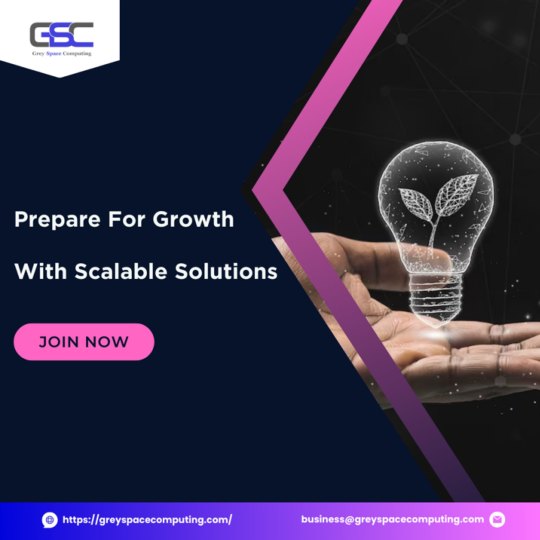
Growth is exciting, but only if your app can handle it! Cloud technology ensures your app scales effortlessly to meet increasing demand. 📈 Get ready for success! 🔗Learn more: https://greyspacecomputing.com/custom-mobile-application-development-services/ 📧 Visit: https://greyspacecomputing.com/portfolio
#GreySpaceComputing#CloudTech#AppScalability#cloudcomputing#cloud#technology#cybersecurity#aws#bigdata#devops#it#datacenter#azure#cloudstorage#linux#programming#software#tech#iot#cloudservices#coding#cloudsecurity#machinelearning#informationtechnology#datascience#business#python#security#microsoft#dataprotection
2 notes
·
View notes
Text
Uncover the power of AWS with our carousel of key findings! Dive into essential AWS statistics and unlock insights you didn't know you needed.



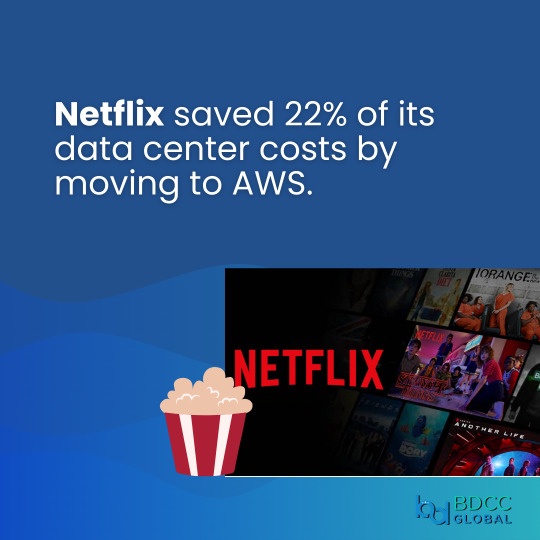
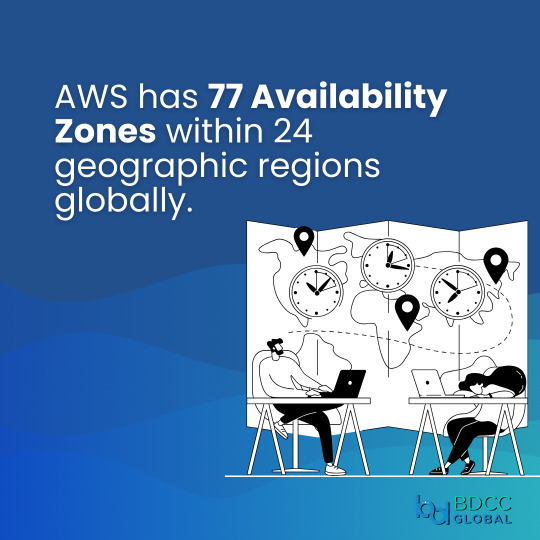
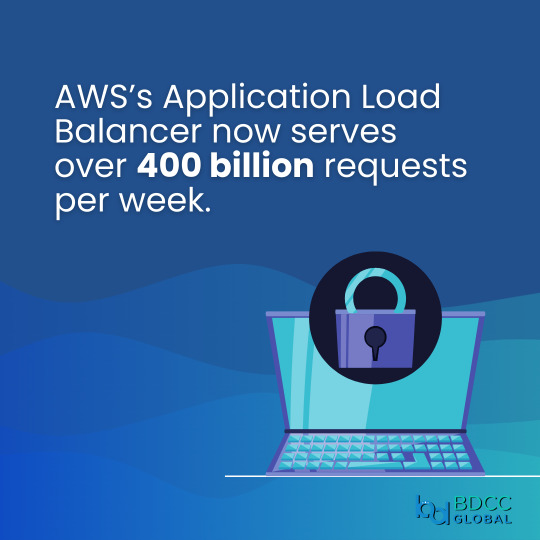
4 notes
·
View notes
Text
Journey to Devops
The concept of “DevOps” has been gaining traction in the IT sector for a couple of years. It involves promoting teamwork and interaction, between software developers and IT operations groups to enhance the speed and reliability of software delivery. This strategy has become widely accepted as companies strive to provide software to meet customer needs and maintain an edge, in the industry. In this article we will explore the elements of becoming a DevOps Engineer.
Step 1: Get familiar with the basics of Software Development and IT Operations:
In order to pursue a career as a DevOps Engineer it is crucial to possess a grasp of software development and IT operations. Familiarity with programming languages like Python, Java, Ruby or PHP is essential. Additionally, having knowledge about operating systems, databases and networking is vital.
Step 2: Learn the principles of DevOps:
It is crucial to comprehend and apply the principles of DevOps. Automation, continuous integration, continuous deployment and continuous monitoring are aspects that need to be understood and implemented. It is vital to learn how these principles function and how to carry them out efficiently.
Step 3: Familiarize yourself with the DevOps toolchain:
Git: Git, a distributed version control system is extensively utilized by DevOps teams, for code repository management. It aids in monitoring code alterations facilitating collaboration, among team members and preserving a record of modifications made to the codebase.
Ansible: Ansible is an open source tool used for managing configurations deploying applications and automating tasks. It simplifies infrastructure management. Saves time when performing tasks.
Docker: Docker, on the other hand is a platform for containerization that allows DevOps engineers to bundle applications and dependencies into containers. This ensures consistency and compatibility across environments from development, to production.
Kubernetes: Kubernetes is an open-source container orchestration platform that helps manage and scale containers. It helps automate the deployment, scaling, and management of applications and micro-services.
Jenkins: Jenkins is an open-source automation server that helps automate the process of building, testing, and deploying software. It helps to automate repetitive tasks and improve the speed and efficiency of the software delivery process.
Nagios: Nagios is an open-source monitoring tool that helps us monitor the health and performance of our IT infrastructure. It also helps us to identify and resolve issues in real-time and ensure the high availability and reliability of IT systems as well.
Terraform: Terraform is an infrastructure as code (IAC) tool that helps manage and provision IT infrastructure. It helps us automate the process of provisioning and configuring IT resources and ensures consistency between development and production environments.
Step 4: Gain practical experience:
The best way to gain practical experience is by working on real projects and bootcamps. You can start by contributing to open-source projects or participating in coding challenges and hackathons. You can also attend workshops and online courses to improve your skills.
Step 5: Get certified:
Getting certified in DevOps can help you stand out from the crowd and showcase your expertise to various people. Some of the most popular certifications are:
Certified Kubernetes Administrator (CKA)
AWS Certified DevOps Engineer
Microsoft Certified: Azure DevOps Engineer Expert
AWS Certified Cloud Practitioner
Step 6: Build a strong professional network:
Networking is one of the most important parts of becoming a DevOps Engineer. You can join online communities, attend conferences, join webinars and connect with other professionals in the field. This will help you stay up-to-date with the latest developments and also help you find job opportunities and success.
Conclusion:
You can start your journey towards a successful career in DevOps. The most important thing is to be passionate about your work and continuously learn and improve your skills. With the right skills, experience, and network, you can achieve great success in this field and earn valuable experience.
2 notes
·
View notes
Text

📊 Cloud & DevOps Integration: Transforming Digital Operations! 🌩️🤖
In today’s digital era, seamless integration between Cloud and DevOps is reshaping the tech landscape. This collaboration empowers businesses with faster releases, enhanced flexibility, and reliable scalability. Here’s how Cloud and DevOps integration is driving impact:
🚀 Benefits of Cloud-DevOps Integration:
Scalability & Flexibility: Quickly scale applications to meet user demand.
Continuous Delivery & Automation: Streamline CI/CD pipelines for rapid, reliable releases.
Enhanced Collaboration: Dev & Ops teams work together seamlessly, leveraging shared tools and cloud resources.
Improved Security: Integrated security measures protect data across cloud environments.
Cost Efficiency: Pay-as-you-go cloud resources cut down on unnecessary expenses.
🔧 Key Components of Cloud & DevOps Integration:
CI/CD Pipeline: Automate code integration and deployment for faster delivery.
Infrastructure as Code (IaC): Manage resources and infrastructure through code, ensuring consistency.
Containerization: Use tools like Docker & Kubernetes for microservices and scalable deployment.
Monitoring & Logging: Real-time insights enhance proactive management and optimization.
💼 Want to boost your career with Cloud and DevOps expertise? Join our DevOps Online Training today to master these essential skills and accelerate your journey in the tech industry! 🌐✨
0 notes
Text
Haha

66 notes
·
View notes
Text
Google Cloud Professional Cloud Architect Certification. Become a GCP Cloud Architect, Latest GCP Exam and Case Studies.
Google Cloud Platform is one of the fastest-growing cloud service platforms offered today that lets you run your applications and data workflows at a 'Google-sized' scale.
Google Cloud Certified Professional Cloud Architect certification is one of the most highly desired IT certifications out today. It is also one of the most challenging exams offered by any cloud vendor today. Passing this exam will take many hours of study, hands-on experience, and an understanding of a very wide range of GCP topics.
Luckily, we're here to help you out! This course is designed to be your best single resource to prepare for and pass the exam to become a certified Google Cloud Architect.
Why should do a Google Cloud Certification?
Here are few results from Google's 2020 Survey:
89% of Google Cloud certified individuals are more confident about their cloud skills
GCP Cloud Architect was the highest paying certification of 2020 (2) and 2019 (3)
More than 1 in 4 of Google Cloud certified individuals took on more responsibility or leadership roles at work
Why should you aim for Google Cloud - GCP Cloud Architect Certification?
Google Cloud Professional Cloud Architect certification helps you gain an understanding of cloud architecture and Google Cloud Platform.
As a Cloud Architect, you will learn to design, develop, and manage robust, secure, scalable, highly available, and dynamic solutions to drive business objectives.
The Google Cloud Certified - Professional Cloud Architect exam assesses your ability to:
Design and architect a GCP solution architecture
Manage and provision the GCP solution infrastructure
Design for security and compliance
Analyze and optimize technical and business processes
Manage implementations of Google Cloud architecture
Ensure solution and operations reliability
Are you ready to get started on this amazing journey to becoming a Google Cloud Architect?
So let's get started!
Who this course is for:
You want to start your Cloud Journey with Google Cloud Platform
You want to become a Google Cloud Certified Professional Cloud Architect
#googlecloud#aws#cloud#cloudcomputing#azure#google#googlepixel#technology#machinelearning#awscloud#devops#bigdata#python#coding#googlecloudplatform#cybersecurity#gcp#developer#microsoft#linux#datascience#tech#microsoftazure#programming#amazonwebservices#amazon#software#pixel#xl#azurecloud
5 notes
·
View notes
Text
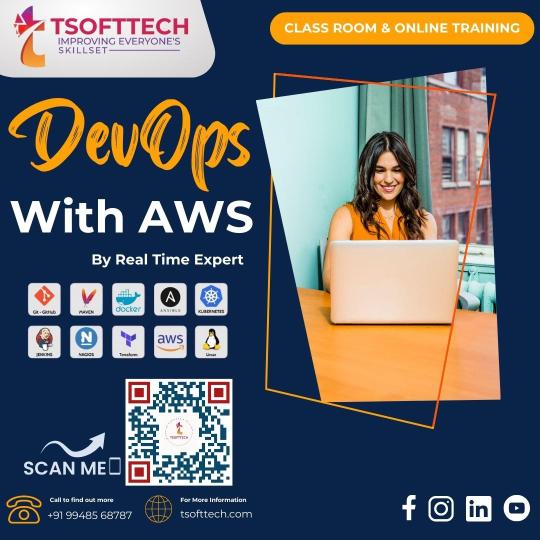
Tsofttech is a One of the best quality training center for online, Classroom and Corporate trainings In Hyderabad . We are providing DEVOPS Online Training through world wide. Tsofttech is excellent DEVOPS Training center in Hyderabad. After course we will give support for certification, Resume preparation and how to prepare for interviews.
For More: https://tsofttech.com/devops-online-training
Attend Free Demo On DevOps With AWS Sign Up Now: https://bit.ly/3rp0W84 To Boost Your IT Career to Next Level by Expert Faculty's. Register now to reserve your spot.
3 notes
·
View notes